
FairMormon
FairMormon
RiseUp! is a new podcast, produced by FairMormon, that is designed to provide faithful answers to difficult or critical questions that young adults may have about Mormon (LDS) teachings or culture. Aimed at the seminary student or institute age individual, RiseUp deals honestly, and with sound reason, with a wide variety of topics ranging from how to find answers to prayer and what it means to “pray about it,” also, ways to talk with parents about issues surrounding chastity and sex, as well as answering questions that might arise with multiple accounts of the First Vision of Joseph Smith, church views on Same Sex (Gender) Attraction or even mental health issues.
- 26 minutes 9 secondsRiseUp Podcast – The Choice of Discipleship
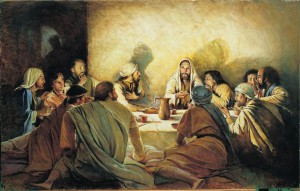 Some of the greatest questions that we have in life don’t arise from an unknown piece of information, rather the choices we make in the direction of our lives. There is one choice that is so fundamental that it requires both ernest study, and a lifetime of reappraisal and recommitment to that choice. I speak of the choice of discipleship.
Some of the greatest questions that we have in life don’t arise from an unknown piece of information, rather the choices we make in the direction of our lives. There is one choice that is so fundamental that it requires both ernest study, and a lifetime of reappraisal and recommitment to that choice. I speak of the choice of discipleship.A disciple is a title given to followers of Jesus Christ. President James E. Faust defined discipleship this way in the October 2006 General Conference:
“The word for disciple and the word for discipline both come from the same Latin root—discipulus, which means pupil. It emphasizes practice or exercise. Self-discipline and self-control are consistent and permanent characteristics of the followers of Jesus, as exemplified by Peter, James, and John, who indeed “forsook all, and followed him.” The disciples of Christ receive a call to not only forsake the pursuit of worldly things but to carry the cross daily. To carry the cross means to follow His commandments and to build up His Church on the earth. It also means self-mastery.”
In D&C 41:5 God defines further what He considers to be a disciple, “He that receiveth my law and doeth it, the same is my disciple; and he that saith he receiveth it and doeth it not, the same is not my disciple, and shall be cast out from among you.”
In other scriptures are additional ways to describe the acts and therefore the character of a disciple. Sometimes this is further emphasized by stating behaviors that distinguish an individual as lacking the characteristics of a disciple. D&C 45:32 addresses the disciples choice to be steadfast and to be found doing the right things, in the right place, at the right time, “But my disciples shall stand in holy places, and shall not be moved; but among the wicked, men shall lift up their voices and curse God and die.”
D&C 52:40 addresses the need to love and care for our neighbors, “And remember in all things the poor and the needy, the sick and the afflicted, for he that doeth not these things, the same is not my disciple.”
D&C 103:27-28 speaks to the level of commitment that a disciple must have to the commandments and principles of Jesus Christ and His gospel, “Let no man be afraid to lay down his life for my sake; for whoso layeth down his life for my sake shall find it again. And whoso is not willing to lay down his life for my sake is not my disciple.”
President James E. Faust also taught this the same October 2006 General Conference talk:
What is discipleship? It is primarily obedience to the Savior. Discipleship includes many things. It is chastity. It is tithing. It is family home evening. It is keeping all the commandments. It is forsaking anything that is not good for us. Everything in life has a price. Considering the Savior’s great promise for peace in this life and eternal life in the life to come, discipleship is a price worth paying. It is a price we cannot afford not to pay. By measure, the requirements of discipleship are much, much less than the promised blessings.”
As stated before, the choice of discipleship is a two part choice. First one must study and come to know the life of a disciple. The second is to remain true to that commitment and to that lifestyle unceasingly. The best source for studying the life of a disciple is to study the life of Jesus Christ. He is the example of who a disciple can and should become, and it is in His teachings that we learn how to act as he would act. A disciple must choose to follow the Savior’s example and teachings.
When a person is baptized into the church, this acts as a formal declaration of discipleship. Elder Daniel L. Johnson of the Seventy said this in the October 2012 General Conference:
“Those of us who have entered into the waters of baptism and received the gift of the Holy Ghost have covenanted that we are willing to take upon ourselves the name of Jesus Christ, or in other words, we declare ourselves to be disciples of the Lord. We renew that covenant each week as we partake of the sacrament, and we demonstrate that discipleship by the way that we live.”
Those of who have been baptized have made the choice of discipleship, but we have also promised to always keep true to that commitment. This choice does not come with an exist strategy, vacation days, or an expiration date. President Dieter F. Uchtdorf said this in the April 2014 General Conference, “Being a disciple of Jesus Christ is not an effort of once a week or once a day. It is an effort of once and for all.”
When placed up against physical or spiritual trials, maybe even those where we question our faith, or waver in our commitments due to feeling a sense of being overwhelmed, the choice to continue in discipleship can seem especially difficult.
When a person comes across a troubling piece of history, or social pressures to accept a lifestyle or practice that is contrary to gospel standards, one may begin to question that choice of discipleship. Other times we observe challenges in our life that are more situational, such as a loss of job, the death of a loved one, or pressing issues like experiencing same sex attraction, gender confusion, or mental health issues like depression or anxiety, and wonder if God is real, or even ask “for what evil am I being punished?” Another question that is commonly asked is, “Why should I be so committed to something that is hard to understand, or seems to conflict with what I now know?” I too, have had moments where I questioned my commitments in light of certain trials of faith, or due to the choices others have made that have had an adverse impact on my dedication.
In those times I try to remind myself that I am not alone in these feelings. Even the Savior’s chosen Apostles in the old world, often called disciples in the scriptures, had periods of wavering commitment.
Jeffrey R. Holland gave a powerful lesson in the October 2012 General Conference entitled The First Great Commandment. I encourage a weekly study of that talk as part of our sacrament preparation. In that talk Elder Holland recounts the story of Peter and the other disciples being called, ministering for three years with the Savior, then going back to fishing-back to their previous life. I offer this story because within its text is the key to self-appraising our level of commitment, but also the methods to finding the desire to re-ignite that commitment time and time again.
“There is almost no group in history for whom I have more sympathy than I have for the eleven remaining Apostles immediately following the death of the Savior of the world. I think we sometimes forget just how inexperienced they still were and how totally dependent upon Jesus they had of necessity been. To them He had said, “Have I been so long time with you, and yet hast thou not known me … ?”
But, of course, to them He hadn’t been with them nearly long enough. Three years isn’t long to call an entire Quorum of Twelve Apostles from a handful of new converts, purge from them the error of old ways, teach them the wonders of the gospel of Jesus Christ, and then leave them to carry on the work until they too were killed. Quite a staggering prospect for a group of newly ordained elders.
Especially the part about being left alone. Repeatedly Jesus had tried to tell them He was not going to remain physically present with them, but they either could not or would not comprehend such a wrenching thought. Mark writes:
“He taught his disciples, and said unto them, The Son of man is delivered into the hands of men, and they shall kill him; and after that he is killed, he shall rise the third day. “But they understood not that saying, and were afraid to ask him.”
Then, after such a short time to learn and even less time to prepare, the unthinkable happened, the unbelievable was true. Their Lord and Master, their Counselor and King, was crucified. His mortal ministry was over, and the struggling little Church He had established seemed doomed to scorn and destined for extinction. His Apostles did witness Him in His resurrected state, but that only added to their bewilderment. As they surely must have wondered, “What do we do now?” they turned for an answer to Peter, the senior Apostle.
Here I ask your indulgence as I take some nonscriptural liberty in my portrayal of this exchange. In effect, Peter said to his associates: “Brethren, it has been a glorious three years. None of us could have imagined such a few short months ago the miracles we have seen and the divinity we have enjoyed. We have talked with, prayed with, and labored with the very Son of God Himself. We have walked with Him and wept with Him, and on the night of that horrible ending, no one wept more bitterly than I. But that is over. He has finished His work, and He has risen from the tomb. He has worked out His salvation and ours. So you ask, ‘What do we do now?’ I don’t know more to tell you than to return to your former life, rejoicing. I intend to ‘go a fishing.’” And at least six of the ten other remaining Apostles said in agreement, “We also go with thee.” John, who was one of them, writes, “They went forth, and entered into a ship immediately.”
But, alas, the fishing wasn’t very good. Their first night back on the lake, they caught nothing—not a single fish. With the first rays of dawn, they disappointedly turned toward the shore, where they saw in the distance a figure who called out to them, “Children, have you caught anything?” Glumly these Apostles-turned-again-fishermen gave the answer no fisherman wants to give. “We have caught nothing,” they muttered, and to add insult to injury, they were being called “children.”
“Cast the net on the right side of the ship, and ye shall find,” the stranger calls out—and with those simple words, recognition begins to flood over them. Just three years earlier these very men had been fishing on this very sea. On that occasion too they had “toiled all the night, and [had] taken nothing,” the scripture says. But a fellow Galilean on the shore had called out to them to let down their nets, and they drew “a great multitude of fishes,” enough that their nets broke, the catch filling two boats so heavily they had begun to sink.
Now it was happening again. These “children,” as they were rightly called, eagerly lowered their net, and “they were not able to draw it for the multitude of fishes.” John said the obvious: “It is the Lord.” And over the edge of the boat, the irrepressible Peter leaped.
After a joyful reunion with the resurrected Jesus, Peter had an exchange with the Savior that I consider the crucial turning point of the apostolic ministry generally and certainly for Peter personally, moving this great rock of a man to a majestic life of devoted service and leadership. Looking at their battered little boats, their frayed nets, and a stunning pile of 153 fish, Jesus said to His senior Apostle, “Peter, do you love me more than you love all this?” Peter said, “Yea, Lord; thou knowest that I love thee.”
The Savior responds to that reply but continues to look into the eyes of His disciple and says again, “Peter, do you love me?” Undoubtedly confused a bit by the repetition of the question, the great fisherman answers a second time, “Yea, Lord; thou knowest that I love thee.”
The Savior again gives a brief response, but with relentless scrutiny He asks for the third time, “Peter, do you love me?” By now surely Peter is feeling truly uncomfortable. Perhaps there is in his heart the memory of only a few days earlier when he had been asked another question three times and he had answered equally emphatically—but in the negative. Or perhaps he began to wonder if he misunderstood the Master Teacher’s question. Or perhaps he was searching his heart, seeking honest confirmation of the answer he had given so readily, almost automatically. Whatever his feelings, Peter said for the third time, “Lord, … thou knowest that I love thee.”
To which Jesus responded (and here again I acknowledge my nonscriptural elaboration), perhaps saying something like: “Then Peter, why are you here? Why are we back on this same shore, by these same nets, having this same conversation? Wasn’t it obvious then and isn’t it obvious now that if I want fish, I can get fish? What I need, Peter, are disciples—and I need them forever. I need someone to feed my sheep and save my lambs. I need someone to preach my gospel and defend my faith. I need someone who loves me, truly, truly loves me, and loves what our Father in Heaven has commissioned me to do. Ours is not a feeble message. It is not a fleeting task. It is not hapless; it is not hopeless; it is not to be consigned to the ash heap of history. It is the work of Almighty God, and it is to change the world. So, Peter, for the second and presumably the last time, I am asking you to leave all this and to go teach and testify, labor and serve loyally until the day in which they will do to you exactly what they did to me.”
Then, turning to all the Apostles, He might well have said something like: “Were you as foolhardy as the scribes and Pharisees? As Herod and Pilate? Did you, like they, think that this work could be killed simply by killing me? Did you, like they, think the cross and the nails and the tomb were the end of it all and each could blissfully go back to being whatever you were before? Children, did not my life and my love touch your hearts more deeply than this?”
My beloved brothers and sisters, I am not certain just what our experience will be on Judgment Day, but I will be very surprised if at some point in that conversation, God does not ask us exactly what Christ asked Peter: “Did you love me?” I think He will want to know if in our very mortal, very inadequate, and sometimes childish grasp of things, did we at least understand one commandment, the first and greatest commandment of them all—“Thou shalt love the Lord thy God with all thy heart, and with all thy soul, and with all thy strength, and with all thy mind.” And if at such a moment we can stammer out, “Yea, Lord, thou knowest that I love thee,” then He may remind us that the crowning characteristic of love is always loyalty.
“If ye love me, keep my commandments,” Jesus said. So we have neighbors to bless, children to protect, the poor to lift up, and the truth to defend. We have wrongs to make right, truths to share, and good to do. In short, we have a life of devoted discipleship to give in demonstrating our love of the Lord. We can’t quit and we can’t go back.”
If you want answers to questions about historical events, if you want answers on who to marry, if you want answers on wether or not to go or even stay on a mission, remembering and recommitting to your choice of discipleship will put you back in a mindset to feel and recognize the spirit. It is that spirit that will guide you into truth and will guide you to an exalted life. If we can answer that now famous question, “Do you love me?” with a “yes, I do love thee Lord,” we can feel of His love, we can be open to the promptings of the spirit, and we can find answers to difficult questions we may face. In essence we can feel peace. I have felt that peace in my own life and I can testify that this is true. I do love the Lord, and that choice to love the Lord is the choice of discipleship.
The post RiseUp Podcast – The Choice of Discipleship appeared first on FAIR.
8 August 2015, 12:46 am - 10 minutes 34 secondsRiseUp Podcast – Spiritual Calculators
ch
![MP900314189[1]](https://www.fairmormon.org/wp-content/uploads/2015/07/MP9003141891-300x300.jpg) This podcast is all about helping people find answers to spiritual and doctrinal questions. And I asked myself, how do I go about getting the right answer, as opposed to just SOME answer. If life were a math problem is there a calculator?
This podcast is all about helping people find answers to spiritual and doctrinal questions. And I asked myself, how do I go about getting the right answer, as opposed to just SOME answer. If life were a math problem is there a calculator?When a child is first introduced to basic mathematics, such 1+1=2, that individual is being taught the power of reason to come up with answers. For years many have assumed that this basic equation is correct, and in basic mathematical terms, it is and always will be correct. But in reality, even this simple equation can be questioned to the point that the answer may cause someone to even doubt their assumption that 1+1 may equals 2.
For example, one apple, plus one orange, does not equal two apples, or two oranges. That simple redefinition of what is being added may cause someone to think that even the simplest of equations don’t make sense anymore. What a shocking realization! Oh no, now what? Is the rest of math wrong? If 1+1 doesn’t always equal 2, I guess the universe is a random and chaotic existence that has no order, and no meaning. Call it a math crisis, right?
Some have called mathematics, the absolute truth. That is because 1 + 1 should always equal 2. However, as was just demonstrated, depending on how you view the equation, you can come up with a very different answer. One might even ask, “Is there an absolute truth after all?” It seems that even math has nuances to it making even something as simple as 1+1 may not always appear as equaling 2.
However, when this equation is stripped of it’s redefinition of being one apple and one orange, the equation becomes true again. 1+1=2 is true when we are dealing with simple numbers. When the numbers are what they are supposed to be, a numerical value, the math works.
In the Church of Jesus Christ of Latter-day Saints, members, and even church leaders, will speak of the doctrines and teaching of the Church as being the fullness of the gospel, the gospel is TRUE! There are those that view the gospel, or the Church and its doctrines, as simple 1+1=2 kind of thinking, and there are those who see it in grand complexity, but still know that even complex equations have a true answer. Then there are those who question that simplicity, they look for ways for that approach to appear flawed, incomplete, or incorrect. In an effort to do this, certain redefinitions take place, certain inferences or qualifiers can be attached to those things which are simple, in an effort to disprove even the simplest or fundamental of assumptions.
What then is the source of truth, how can we “prove” truth?
Calculators are an interesting device. Calculators are used in various forms as a way to assist the mind in coming to a mathematical answer. They are not swayed by hypotheticals, they are not influenced by false assumptions. Inside a calculator are the answers to a near infinite possibility of equations.
In High School, as students begin to venture in to more complex equations, the students may use scientific calculators. When entering this world of more complex mathematical equations many of the buttons on a scientific calculator have little to no meaning. As one learns the functions behind the various buttons, (cos, tan, x2, etc.) you also need to learn the order in which those buttons can be employed in order for the equation to come to the right answer. One must also learn things like the “order of operations” or the order in which the various equations need to be approached in order for the correct answer to come out. Trying to find the answer without using the order of operations will likely give you a vastly different answer than just going through an equation from left to right.
When I first learned about these things I thought, “How dumb! Why does math have to be so complicated, why do we have to remember all these rules and orders…” Then I asked the same question that so many seem to ask, “When am I ever going to use this in my real life?”
Well, here goes one application with math to be used in real life, and it has very little to do with math, directly. Think of this as a metaphor. Call it the “Parable of the Solar Powered Scientific Calculator” if you will. I won’t take the time to apply the metaphor, that’s up to you and hopefully the spirit. But listen with your spiritual ears.
Math is about finding answers. For many, the quest for discipleship, or even a higher spirituality is also about finding answers. Just like in math there is a source for all spiritual truth, a source that, when employed correctly, can help us find answers to the questions for which we seek an answer. But just like a math problem, we need to understand some basic principles of operation before we can get the correct answer. We need to ask the calculator the right equation. And just because we think we are using all the tools we have, doesn’t mean that the answer that we read on the little screen is the correct answer.
It is not uncommon to push the wrong button, or skip a step, or do something out of the order of operations. When this happens it is not the calculators fault for getting the wrong answer, it is user error that is likely to blame. That doesn’t mean a person is stupid, it just means give it another go and try something else. For me I have to write down every step of the equation as I go through it, even when using a calculator. Because the in between calculations that some algebraic equations would present, open up an exponential set of opportunities to miscalculate. Also I typically need to go back and check (and sometimes re-check) the answer that I ended up with just to make sure. I rarely take the first answer as the final answer. I would go back through each step after I came to an answer to make extra sure that I did each step in order and that I did each step correctly. If even one part of the equation was off, it would likely throw off the entire process and I would come to a vastly different answer than the right one.
That is the also the hard thing about math. You often come to an answer, but that doesn’t mean it is the right answer. Rarely do you get the dreaded “Big E” that comes up on the calculator where you know you have made a serious error. Most of the time, you do get a numerical value, but just because it is a number doesn’t mean it is the right number. Double check each step of the equation and make sure that step was completed correctly, write it down, and proceed through each step, in order.
I also have to tell myself that than no matter how many times I come to the wrong answer, it doesn’t automatically become the right answer. I have to remind myself, I am not inventing math, I am not creating new logic, I am learning the principles of math that are unchanging and applying them to the equation to get the right answer. With math we are not afforded the flexibility of going with the number we feel is right.
If you were anything like me in high school, the math book could have words explaining how an equation was done, but that didn’t mean I understood how to do the math. A teacher was often far more effective in explaining what each step meant, why each step was important, and so on. Good teachers helped math books make sense. Over time I could see the value in learning statistics, geometry, and yes, even in algebra.
In time, and with some help from others who know math far better than myself, I learned how to answer mathematical questions. I had great teachers, I had a scientific calculator, but I needed one more thing. I needed light to give power to my calculator. Every now and then, my solar powered calculator would need to be in the presence of light in order to charge it’s battery. Without that light, it didn’t matter how much I pushed those buttons I would not get an answer.
Ultimately, I learned to trust my teachers, I learned that a calculator was a powerful tool, but a tool that needed to be used and understood in the way it was intended. Eventually I would learn the right answer.
The post RiseUp Podcast – Spiritual Calculators appeared first on FAIR.
24 July 2015, 3:03 pm - 59 minutes 44 secondsRiseUp Podcast: Acquainted with Grief – Interview with Misty NielsonEvery now and then you hear the story of an individual that is able to demonstrate incredible faith, and endurance, that is as uncommon as is their life experience. That is the case with Misty Nielson. Her story shows the importance of family, just perhaps not in the way you may think.
 Misty Nielson is 34 years old and a Mother to 5. Married for 16 years, she is a convert to the church, and the only member in her family.
She grew up in an abusive home, and was abandoned by both biological parents, only to be adopted into a home that was also abusive. She moved out when I was 16, was legally emancipated and joined the church when she was 17. Following her baptism she used the last of her money to move out west to Utah.
After married her husband Andrew, they have since had 5 children -One of which died shortly after childbirth.
After the death of that child, Misty did not attend church for a period of time. During her absence from church, I was prompted to start a business, called Baby Boards – where she creates memorial pieces for other women who have lost children.
After years of not attending she decided to come back to full activity At the beginning of 2013, and received a temple recommend after being without one for 10 years.
Her husband now has schizophrenia and is unable to participate in church because church is a trigger for him. Misty considers Andrew’s continued support, in spite of this condition, to be a huge blessing – – he wants to be with them, but cannot.
If that were not enough struggle in her life, one of their children also has mental illness – an anxiety disorder and OCD. In all this, Misty and her family have drawn closer to the Lord with a greater appreciation of what it means to have a Christ centered family. Misty also is well acquainted with the challenges that face individuals who do not attend church for one reason or another as they seek to return back to activity in the Church of Jesus Christ of Latter-day Saints.
Misty Nielson is 34 years old and a Mother to 5. Married for 16 years, she is a convert to the church, and the only member in her family.
She grew up in an abusive home, and was abandoned by both biological parents, only to be adopted into a home that was also abusive. She moved out when I was 16, was legally emancipated and joined the church when she was 17. Following her baptism she used the last of her money to move out west to Utah.
After married her husband Andrew, they have since had 5 children -One of which died shortly after childbirth.
After the death of that child, Misty did not attend church for a period of time. During her absence from church, I was prompted to start a business, called Baby Boards – where she creates memorial pieces for other women who have lost children.
After years of not attending she decided to come back to full activity At the beginning of 2013, and received a temple recommend after being without one for 10 years.
Her husband now has schizophrenia and is unable to participate in church because church is a trigger for him. Misty considers Andrew’s continued support, in spite of this condition, to be a huge blessing – – he wants to be with them, but cannot.
If that were not enough struggle in her life, one of their children also has mental illness – an anxiety disorder and OCD. In all this, Misty and her family have drawn closer to the Lord with a greater appreciation of what it means to have a Christ centered family. Misty also is well acquainted with the challenges that face individuals who do not attend church for one reason or another as they seek to return back to activity in the Church of Jesus Christ of Latter-day Saints.

The post RiseUp Podcast: Acquainted with Grief – Interview with Misty Nielson appeared first on FAIR.
25 June 2015, 4:29 pm - 22 minutes 58 secondsRiseUp Podcast – Doubt Your Doubts – Interview with Chad Conrad
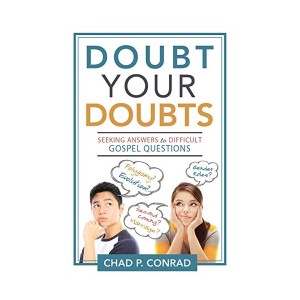 “Doubt Your Doubts” by Chad Conrad is an eye-opening read that will help readers strengthen their faith, confront controversial topics and find relevant answers to everyday life. The book addresses hot-button questions, such as “Why don’t women hold the priesthood?” and “How should we deal with homosexuality?” Readers’ toughest gospel questions can become testimony-builders with this timely and informative book.
“Doubt Your Doubts” by Chad Conrad is an eye-opening read that will help readers strengthen their faith, confront controversial topics and find relevant answers to everyday life. The book addresses hot-button questions, such as “Why don’t women hold the priesthood?” and “How should we deal with homosexuality?” Readers’ toughest gospel questions can become testimony-builders with this timely and informative book.To purchase a copy of Doubt Your Doubts, buy it at a discount through the FairMormon Bookstore.

The post RiseUp Podcast – Doubt Your Doubts – Interview with Chad Conrad appeared first on FAIR.
17 June 2015, 12:00 pm - 10 minutes 39 secondsRiseUp Podcast: Hugh B. Brown – Letter on Doubt
Hugh B. Brown served as an apostle, and later, as a member of the First Presidency of The Church of Jesus Christ of Latter-day Saints. Before that, he worked for a short time as a professor of religion at Brigham Young University. While there, he received a letter from a close friend who was experiencing what is now commonly called a “crisis of faith.” The advice he gave nearly seventy years ago has never been published, but is still pertinent to us today as we all struggle to “keep the faith.”
This letter has been brought forward by Steve Densley, and this podcast is presented by him, including a reading of the full text of the letter. Click here to read the full text of the letter.
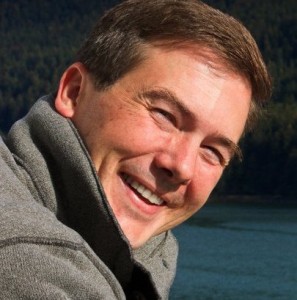 Steve Densley, Jr. is an attorney and is licensed to practice law in Utah, Nevada, Idaho, Oregon, Washington and before the U.S. Supreme Court. He graduated with University Honors from Brigham Young University with a combined Bachelors and Masters degree in Public Policy and Political Science. He received his law degree from Brigham Young University where he was a member of the Law Review and the National Moot Court team. He has served in church on the high council, as the stake executive secretary, elders quorum president, young men’s president and as a gospel doctrine teacher. He has been recognized in SuperLawyers Magazine as one of the Mountain States Rising Stars and has been listed numerous times in Utah Business Magazine as being among the Utah Legal Elite. He has appeared on CNN, C-Span, BBC Radio, KUTV, KTVX, KSL Radio, KTKK Radio, and Swiss TV.
Steve Densley, Jr. is an attorney and is licensed to practice law in Utah, Nevada, Idaho, Oregon, Washington and before the U.S. Supreme Court. He graduated with University Honors from Brigham Young University with a combined Bachelors and Masters degree in Public Policy and Political Science. He received his law degree from Brigham Young University where he was a member of the Law Review and the National Moot Court team. He has served in church on the high council, as the stake executive secretary, elders quorum president, young men’s president and as a gospel doctrine teacher. He has been recognized in SuperLawyers Magazine as one of the Mountain States Rising Stars and has been listed numerous times in Utah Business Magazine as being among the Utah Legal Elite. He has appeared on CNN, C-Span, BBC Radio, KUTV, KTVX, KSL Radio, KTKK Radio, and Swiss TV.The post RiseUp Podcast: Hugh B. Brown – Letter on Doubt appeared first on FAIR.
30 May 2015, 5:24 pm - 52 minutes 6 secondsRiseUp Podcast: Dealing with gender dysphoria – Finding inner peace through Christ
Dealing with gender dysphoria: Finding inner peace through Christ – An interview with Kyle and Amy Merkley. To read Kyle’s story and be introduced to the Journey’s of Faith Project from NorthStarLDS, click here.
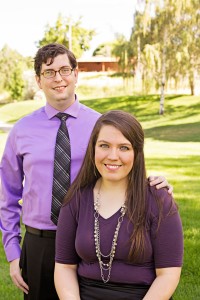 Kyle is the oldest of five children. He grew up in an amazing family and he’s grateful for the strength his family gives him. Kyle is currently attending graduate school at Brigham Young University studying Classical Languages and Literature. He loves literature and loves sharing this love of literature with others. Music has always been a huge part of his life and he plays trumpet, piano, and organ. Kyle has been married for almost five years to Amy who is one of the most amazing women in the world. She helps him to be a better person every day. Kyle loves reading, watching chick flicks, shopping with his wife, and all things nerdy.
Kyle is the oldest of five children. He grew up in an amazing family and he’s grateful for the strength his family gives him. Kyle is currently attending graduate school at Brigham Young University studying Classical Languages and Literature. He loves literature and loves sharing this love of literature with others. Music has always been a huge part of his life and he plays trumpet, piano, and organ. Kyle has been married for almost five years to Amy who is one of the most amazing women in the world. She helps him to be a better person every day. Kyle loves reading, watching chick flicks, shopping with his wife, and all things nerdy.Kyle is here with his wife Amy to talk about their very unique circumstances. For the sake of our conversation today, those unique circumstances will likely focus on the topic of Kyle identifying as being transgender or experiencing gender dysphoria. Kyle has contributed to a new project of the group NorthStar LDS entitled Journeys of Faith – The Journeys of Faith Project is a growing repository of personal essays by Latter-day Saint individuals and families wrestling with issues related to gender identity (e.g., gender dysphoria and/or transgenderism) and are striving to find congruence and peace within the context of the gospel of Jesus Christ.
RiseUp is a podcast designed to offer answers and frameworks for youth, or young adults who are seeking answers to difficult or critical questions about LDS Culture and doctrine.
Questions addressed in this episode:
There is so much to learn and absorb with the topic of being transgender or experiencing gender dysphoria, but let’s first set some foundational items for the basis of our getting to know you and some of the challenges that you face starting with the terms, the lexicon of words that are most welcome to be used when dealing with this subject. What does it mean to be transgender, and what does it mean to experience gender dysphoria in perhaps a more clinical or text book sense?
In your essay on the Journeys of Faith project, entitled: Jesus Wins: Finding Faith in Ambiguity” you express some concepts that may sound familiar to some teenagers in some respects, but maybe not in others. If you could talk about your experience with mirrors growing up.
With your specific life scenario, you were born a genetic male. When did you feel that just didn’t fit your mind’s eye of yourself?
How did your parents respond to this scenario?
It’s important to make the distinction, that in your experience, the thoughts you had were not related to sexual urges or attraction, per se, but just how you saw yourself.
Being a teenager is typically defined in some part with the experience of self-discovery, and the challenges that arise when your body goes through certain biological changes, as well as social independence. But here you are, with another layer to that, something very uncharted in the Mormon experience. In your essay you state that the atonement of Jesus Christ gave you hope, particularly Moroni 10:32 “Yea, come unto Christ, and be perfected in him, and deny yourselves of all ungodliness; and if ye shall deny yourselves of all ungodliness, and love God with all your might, mind and strength, then is his grace sufficient for you, that by his grace ye may be perfect in Christ…”
Music also became a part of your life a coping mechanism. We are both trumpet players as I understand it.
So, even with all that was going on with your life you decided to attend BYU as opposed to perhaps some other university where being transgender would be more either present, accepted, if not encouraged to a certain extent.
BYU led you to a mission call to the California Anaheim Mission. Opening that letter, Dear Elder Kyle Merkley. How did that feel to read that, given your trials and circumstances up to this point? Did you see this as a point of success, of achievement to even feel ready to put in your papers?
In your essay you state: “While serving a mission was really hard in some ways (I had to deal with constant depression, and living with all guys triggered my gender dysphoria), I found serving a mission also clearly defined a role for me. I didn’t have to struggle with the question of who I was. I was told exactly who I was and how I was supposed to act every day. It was that sense of purpose which kept me going.”
It was on your mission that you actually first learned the name for what you were experiencing, or at least a term that has been assigned to those experiencing similar emotions, transgender.
At some point you describe studying for hours, days, weeks, what have you, to find some guidance on what it means to be Transgender and a member of the Church of Jesus Christ of Latter-day Saints, and you kind of snap under the cognitive dissonance, or maybe it would be vacuum of space where questions remained unanswered.
In all this there were some coping mechanisms that you installed, some self-medication that served as a sort of pressure release for all that you were feeling. What were some of those things?
This is when Amy your now wife enters the picture. I have hears some very dear things about Amy, I can’t wait to hear her side of things. How did you two meet?
Kyle has some incredibly tender words to describe what you meant to him, “She asked me out when I didn’t have the self-confidence to ask anyone out. She liked me when I couldn’t find the strength to like myself. And eventually, she loved me when all I felt inside was self-loathing. When we started dating she brought happiness back into my life. Every time I was around her, I felt so right—a rightness I’d been searching for my whole life. She made the pain of gender dysphoria recede into the background. She brought light and color back into a world which was colorless and bleak. She gave me hope. She loves life so much and finds joy in so many little things. Every time I was with her I found little joyful reasons to love life as well. As we dated, she began the process of healing my broken spirit.”
Amy, when did you know this is what you meant to Kyle? When were you opened up to what Kyle was feeling?
You wrote a letter to Amy explaining what was going on, what was in that letter? Is that something public or too personal to be public?
That reprieve from the gender dysphoria came back three months after you were married. What happened? How did you choose to respond?
Here you are today, still together, and now putting your story out there in an effort to help others, to strengthen others to stay true, to know that there is an answer in the gospel of Jesus Christ, and the atonement is stronger than some of the most discouraging trials one can face.
Now that we know your story, and what an amazing story it is and will continue to be, the next little bit I would love to get some insights or suggestions both for those who may be experiencing gender dysphoria themselves, as well as for their family, friends, and even ecclesiastical leaders in order to help all understand this issue more fully, but also to find a path of faith, a journey of faith that includes gender dysphoria.
Starting with those who are experiencing gender dysphoria, if you haven’t already said it in the telling of your story, what would you say to the person listening that may be in that place? Kyle I would like you to answer first, and then Amy, if you could also have a response for that same person.
You go on to say in this essay, “I don’t always know how to deal with the pain of having gender dysphoria, and I constantly wonder how my identity as transgender fits with my identity as a member of the Church of Jesus Christ of Latter-day Saints.” I think members of the Church are in the same place, we don’t always know what to think or how to respond. I can think of the bishop sitting in his office and having someone come to them and say, Bishop, I think I am transgender, and that Bishop going, hmm… what does the handbook say about this? I have looked, and it’s currently blank on this issue. There are issues relating to chastity in which one may make some educated and hopefully inspired decisions, but it is one of those points where we will believe what God will reveal with respect to this issue, but until then, perhaps you could give your advice to a bishop or stake president that is approached with this issue and wants to do so with love, but also inspired guidance.
Perhaps you would be willing to provide some answers and insight you have received as you have fasted and prayed, in an effort to reconcile the lack of information in church manuals and scriptural sources on gender dysphoria specifically, with things like the Family: A Proclamation to the World which clearly asserts the teachings on gender.
Moving forward on the right path, or the choice you have made to remain faithful to your covenants; how does one live by faith when approaching gender dysphoria or being transgender?
Kyle and Amy Merkley are defining what it means to be on a journey of faith. We will post a link to Kyle’s essay as part of the Journeys of Faith project from NorthStarLDS, we encourage all to read it and come to feel the spirit of Kyle’s testimony. Please feel free to share this message with others as part of an effort to show forth love and support, to do as Elder Christofferson encouraged in the April 2015 general conference, to march with those who are experiencing gender dysphoria, and to extend a hand of fellowship as a way of building a zion people.
The post RiseUp Podcast: Dealing with gender dysphoria – Finding inner peace through Christ appeared first on FAIR.
19 May 2015, 2:32 pm - 1 hour 4 minutesRiseUp Podcast – Interview with Rod Olson
In this episode of RiseUp, Nick Galieti interviews Rod Olson in a very candid discussion of the challenges of living an active LDS lifestyle while identifying as being homosexual (or what some describe Same Sex Attraction.)
Born and raised in Northern California, Rod was introduced to the Church as a young child through his mother, who became a member following his parents’ divorce. Rod served a full-time mission in Houston, Texas, studied musical theater at BYU (where he was a member of the Young Ambassadors as well as an instructor at the Missionary Training Center), and performed professionally on the stage in New York City. After a 13-year hiatus, during which time he worked in New York and Los Angeles in the brand development and shipping logistics industries, Rod retured to his entertainment roots and is now a producer in Los Angeles.
Rod realized early in life that he was gay, and at 10 years of age, unbeknownst to his mother, made an appointment to talk about it with his Bishop. As he matured, Rod knew that his homosexuality was not going away. He eventually came out to his parents and spent a decade pursuing short- and long-term relationships with men. Toward the end of this period of self-discovery, Rod fell into addiction. It stripped him of everything—love, relationships, career, friends, money, health, and even hope. With nowhere to turn, Rod entered a 12-step program for gay addicts that, along with the gospel, he credits with saving his life.
Rod has been sober for nine years and active in the Church for eight. Since returning to full activity, Rod has served as executive secretary to three bishops, in an Elders’ Quorum presidency, as stake Public Affairs Director and as a Gospel Doctrine instructor. He currently serves as Ward Mission Leader, a Priesthood teacher at the Los Angeles Federal Prison, as well as a veil worker at the Los Angeles Temple.
Click here to watch Rod Olson’s presentation at a special NorthStar LDS Fireside.
The post RiseUp Podcast – Interview with Rod Olson appeared first on FAIR.
4 May 2015, 4:39 am - 21 minutes 25 secondsRiseUp Podcast – The H Word
In this episode of RiseUp, Nick Galieti interviews a Young Women from Southern Californa named Mikalya.
Mikayla’s parents were members so she was born into the church and baptized when she was 8. But it wasn’t until she turned 13 that she really dove into the gospel. Before that, she was relatively inactive for a few years. She now lives in Southern California where she is currently the Laurel Class President but because her ward is so small, she is effectively the overall Young Women’s Class President. She loves to play guitar, but is not good enough to consider myself anything beyond a beginner. She loves to read, especially anything that involves history, fiction, or both. She love to write and currently writes for her school newspaper and designs a page of the newspaper. She also loves to draw, but her skills are limited to Disney Characters and Looney Toons. She comes on the RiseUp podcast to talk about a poem she wrote for an online contest where she declared her experience as a member of the Church defending traditional marriage. Here is the poem she submitted and the original link for the poem:
The “H Word”
“Did you know he’s a homophobe?”
I froze.
It felt like one of those moments in movies where
Time
Stood
Still.
Yet emotions, thoughts, and feelings hit me at 3×10^8 meters per second.
I’m not one to swear.
I never liked the anger and harshness associated with the words,
Didn’t like the feeling of such unnecessary words rolling off my tongue,
Nor did I enjoy the taste they left behind.
Yet those words no longer gave me
The strange jolt-in-your-chest feeling
That young children get
When they’re young enough to feel uncomfortable at the sound of an infrequently heard “bad word”,
Yet old enough to know it’s bad.
Those words, though I still discouraged the use of them,
Didn’t have the same effect on me
As this “H word” did.
This “H word”, used so casually, carried heavy baggage of hatred.
I knew the “he” they spoke of.
I knew his name, his face,
And I knew his church,
Because his church was my church too
And I had an idea why people might give him such a label.
His church, my church, our church
Did not support gay marriage,
And to some people, wearing a BYU sweatshirt
Or an “I’m a Mormon” pin
Was equivalent to putting an “I supported Prop 8” sign on your back.
And this wasn’t always okay.
This feeling isn’t always there, out in the open,
But it’s never gone.
It’s hiding somewhere in the corner of the room, and comes into the light
When you hear that another state legalized gay marriage
And the person next to you turns toward you and says
“Doesn’t your church hate gay people?”
And whether or not there’s a joking undertone or a serious air to their voice,
It feels like time freezes as their words hit you,
Yet the clock ticks faster as you scramble for the right words.
Because how you explain to this person, whether they be a stranger, acquaintance, or friend,
Whether they be joking or absolutely serious,
That your church doesn’t support gay marriage because of biblical reasons
Without pulling out the bible and throwing out religious doctrine.
And how do you explain to them that just as it says in the Bible that marriage is between a man and a woman,
It says to love thy neighbor,
Whoever they are, whatever they believe
And that you don’t see why people assume that you can’t love someone who is gay, lesbian, bisexual, or transgender
As much as someone who isn’t
And simultaneously not agree with gay marriage?
How do you incorporate that your uncle is gay
And happily married to a great man
To provide the ethos-influenced evidence that your English teacher praises in arguments
To show that even though your church doesn’t support gay marriage,
You’re still capable of being happy that your uncle is happy
Because you love him so much?
How do you emphasize that you’ve met people
Who are gay, lesbian, bisexual, or transgender
And absolutely great people?
Because that’s exactly what they are.
People.
How do you tell them that there’s much more to not supporting gay marriage
Than is shown on the surface.
That it runs deeper and intertwines with doctrine and beliefs
That rest close to your heart.
And that no matter how unpopular they may seem,
You believe them without a doubt.
I don’t remember how I responded to the statement phrased as a question
That labeled a fellow church goer as “a homophobe”
After I unfroze and my emotions, thoughts, and feelings
Slowed
Down.
I don’t remember if I shrugged in an uninterested way that changed the subject,
Or if I looked up and tried to give a Spark Notes-worthy explanation
Of what “he” and I believed
Without seeming like a religious fanatic
Or if I asked the reasons for distributing such a label.
I don’t remember if we were sitting outside with a group of friends,
Sunlight streaming through nearby trees,
Or talking alone in a crowded classroom lit by fluorescent lights.
But I do remember looking down at my shoes at the end of the school day,
Perched on the edge of the sidewalk, waiting to cross
With music blasting through my earbuds
And the “H word” lingering in my mind.
And I remember secretly hoping that that word
Would never be placed as a label above my head,
Yet more than that,
I prayed that I would stand up for what I believed in
No matter what the consequence.
The post RiseUp Podcast – The H Word appeared first on FAIR.
27 April 2015, 4:07 pm - 1 hour 20 minutesBest of FairMormon: April 2015 General Conference – An Apologetic Review (Part 2 – Sunday Sessions & Women’s Session)
April 2015 General Conference featured presenters from the presiding quorums and general officers of The Church of Jesus Christ of Latter-day Saints. In this podcast, volunteers from FairMormon discuss the issues and quotes from selected talks through an apologetic perspective.
Panelists in this episode are Steve Densley, and Cassandra Hedelius (via telephone); moderated by Nick Galieti. In this episode, Part 2, the panel reviews the General Conference sessions that were broadcast on Sunday Morning, Sunday Afternoon, and The General Women’s Session.
Click here for a listing of all the General Conference Presentations from LDS.org
Part 1 of the 2015 FairMormon General Conference Review click here.
The post Best of FairMormon: April 2015 General Conference – An Apologetic Review (Part 2 – Sunday Sessions & Women’s Session) appeared first on FAIR.
20 April 2015, 4:59 am - 1 hour 6 minutesBest of FairMormon: April 2015 General Conference – An Apologetic Review (Part 1 – Saturday Sessions)
 April 2015 General Conference featured presenters from the presiding quorums and general officers of The Church of Jesus Christ of Latter-day Saints. In this podcast, volunteers from FairMormon discuss the issues and quotes from selected talks through an apologetic perspective.
April 2015 General Conference featured presenters from the presiding quorums and general officers of The Church of Jesus Christ of Latter-day Saints. In this podcast, volunteers from FairMormon discuss the issues and quotes from selected talks through an apologetic perspective.Panelists in this episode are Laura Hales, Stephen Smoot, and Neal Rappleye; moderated by Nick Galieti. In this episode, Part 1, the panel reviews the General Conference sessions that were broadcast on Saturday Morning, Saturday Afternoon, and The General Priesthood Session.
Click here for a listing of all the General Conference Presentations from LDS.org
The post Best of FairMormon: April 2015 General Conference – An Apologetic Review (Part 1 – Saturday Sessions) appeared first on FAIR.
8 April 2015, 7:57 pm - 43 minutes 7 secondsRiseUp Podcast – Freetown Movie – Interview with Garrett Batty and Melissa Larson
Click here to find showings of Freetown at a theater near you.
Films have an impact on how we view the world. But in some cases, films have an impact on the way the world views us. Freetown is the latest film from Garrett Batty, the director of The Sarratov Approach, With this film, the film makers wanted to help the world to see the power of faith with the story of young missionaries in Africa who had to trust in God, and teach the gospel, while their lives were being threatened in the midst of a bloody civil war.In this episode of RiseUp, we interview Writer and Director Garrett Batty about his work with the film, why he included topics like race and the priesthood, as well as the impact films like this can have on the way individuals throughout the world and their perception of The Church of Jesus Christ of Latter-day Saints. We also interview Melissa Larson, the screenwriter of the film about what it meant to take a real life story of faith and hardship and translate that to the big screen.
The post RiseUp Podcast – Freetown Movie – Interview with Garrett Batty and Melissa Larson appeared first on FAIR.
24 March 2015, 10:00 am - More Episodes? Get the App
Your feedback is valuable to us. Should you encounter any bugs, glitches, lack of functionality or other problems, please email us on [email protected] or join Moon.FM Telegram Group where you can talk directly to the dev team who are happy to answer any queries.
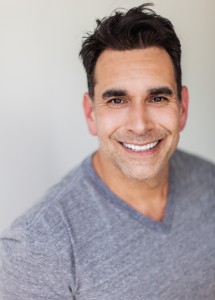
 Scripture Central
Scripture Central
 Joseph Smith's Polygamy
Joseph Smith's Polygamy
 Mormon FAIR-Cast
Mormon FAIR-Cast
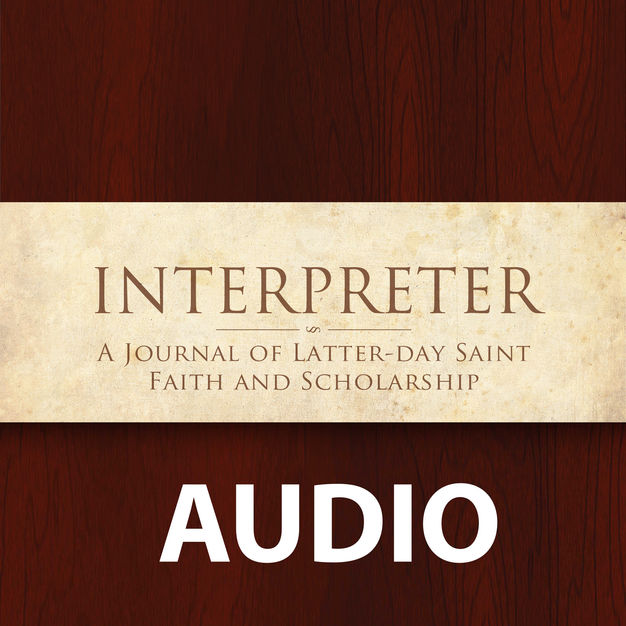 Audio podcast of the Interpreter Foundation
Audio podcast of the Interpreter Foundation
 FairMormon
FairMormon
 Articles of Faith – FairMormon Blog
Articles of Faith – FairMormon Blog